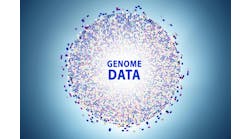Rush University Medical Center in Chicago claims to be the first healthcare organization to launch Epic's module for genomic results. Rush said it would use the module as part of its Precision Oncology Center to integrate genomic sequencing data into oncologists' daily workflows.
When a Rush physician believes that a patient would benefit from genomic testing, the physician sends a tumor and/or blood sample to Tempus, Rush's genomic testing partner. Tempus' genomic tests identify a patient's actionable genomic variants and yield therapeutic options — including matched clinical trials — associated with the patient's molecular and clinical profile.
Tempus' report then flows into Epic, allowing clinicians to make data-driven decisions customized to each patient. Integrating genomic data into the electronic health record provides clinicians with a single view of a patient's genomic and other clinical information.
To really deliver on the promise of precision oncology, providers need to access, interpret and apply this genomic information where and when clinical decisions are made: the EHR,” said Mia Levy, M.D., Ph.D., the Sheba Foundation Director of the Rush University Cancer Center, in a statement. “This new technology makes point-of-care insights and interventions possible.”
Before coming to Rush in 2018, Levy helped build data-driven, clinical decision support functionality at Vanderbilt-Ingram Cancer Center at Vanderbilt University Medical Center in Nashville. She also helped create the nation’s first web-based precision cancer medicine knowledge resource, My Cancer Genome.
Levy noted that while the ability to detect and analyze those changes to a person's genome has grown exponentially in the last several years, the ability to translate that information into specific and practical therapies was limited by the structural inability of EHRs make that data part of the clinical workflow.
So in 2018, Rush oncologists and technologists began collaborating with Epic developers to design the genomics module.
"When developing new features, we focus on how they'll fit into the overall workflow for clinicians and ultimately provide actionable information to improve patient care," said Catherine Procknow, an Epic software developer who works on the genomics module, in a statement.
The module provides a specialized data structure to enable providers – even those without a genomics background – to integrate genomics information into their clinical decision-making process. It turns raw data from gene tests, genetic panels, and complete sequencing into actionable genomic indicators, which are stored in a patient's chart.


